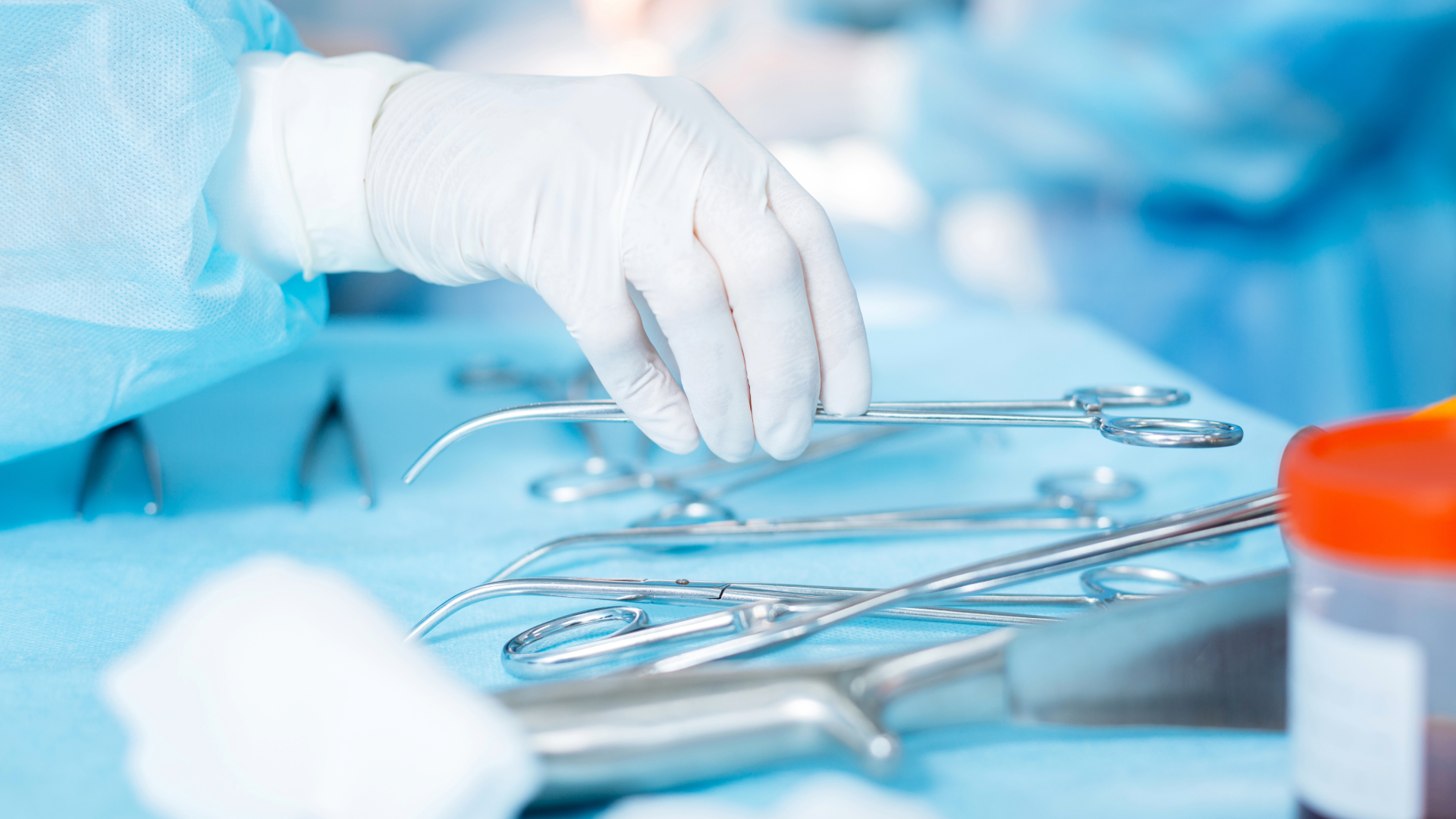Cushing’s disease is caused by the secretion of ACTH by a pituitary tumor. ACTH overdrives the adrenal glands to produce excessive amounts of cortisol, resulting in the clinical features of Cushing syndrome that you have experienced.
Cushing’s Disease Treatment
The elevated cortisol levels during the disease suppress or shut off the normal ACTH-producing cells of the pituitary gland. As a result, once the tumor is removed, and since the normal ACTH-producing cells of the pituitary gland are suppressed, ACTH and cortisol levels fall dramatically after successful surgery.
This results in a temporary state of adrenal insufficiency characterized by very low cortisol levels, necessitating treatment with steroids to maintain a normal cortisol effect on body tissues. Measurement of cortisol levels can, thus, prove whether a patient has been successfully treated and determine if steroids are required to maintain health. Our experience indicates that most patients require steroid treatments for 6 to 18 months after surgery, with the average duration of treatment being about 12 months.
What To Expect After Cushing’s Disease Surgery
We will check your blood cortisol level and decide whether to treat you with steroids immediately after surgery. If you require treatment, we will likely treat you with a steroid known as dexamethasone in a dose range of 0.25 to 0.5 mg daily. This steroid has an effective time of action of 18 to 24 hours and is best taken at bedtime so that you awaken the next morning with good blood levels of the drug. Under some circumstances, we may choose to treat you with hydrocortisone after surgery. You must remain on dexamethasone until you have been told that it is safe to discontinue it.
If you are unclear about whether to take it or have been on it for more than four months and an assessment has not been made or advice not given about whether you should CONTINUE the medicine and then please contact us to determine if it is safe and appropriate to stop the medication BEFORE you do so on your own.
Side Effects Of Post-Surgery Treatment
You should not experience any of the published symptoms or side effects of the dose of dexamethasone that we will ask you to take. Some patients, however, are slow metabolizers of the medication. Further, some physicians co-managing your condition may not understand the dose we use as they have seen dexamethasone used in much higher doses for other conditions, and they may unknowingly adjust the dose upwards, and you would then be overtreated. In these situations, you may experience either a delay in improvement or a worsening of your Cushing’s symptoms and signs. Please alert us to either of these circumstances.
Signs Your Steroid Dose Is Too Low
If your steroid dose is too low, you may experience fatigue, weakness, dizziness, nausea, vomiting, loss of appetite, depression, and body aches. Unfortunately, these are also symptoms experienced by some patients as their body is adapting to relatively normal steroid levels after years of high cortisol levels. We call this “steroid withdrawal.” Sometimes it can be difficult to distinguish between steroid withdrawal and an insufficient dose of steroids, and a visit may be required so we can evaluate should these types of symptoms occur.
Signs You Need More Dexamethasone Or Another Steroid
If you become sick for any reason, require a medical procedure, or are injured while taking supplemental dexamethasone, you may require an adjustment in your steroid dose. We urge you to contact us for additional information should you have any questions or concerns about an event or circumstance that might require an increase in the dose of your dexamethasone or another steroid to cover for the “stress” of an illness.
Diabetes Insipidus and Cushing’s
Diabetes insipidus is uncommon but may occur in some patients after surgery. The symptoms include excessive thirst, a desire to drink more water, and excessive urination. These are very similar symptoms to those seen in patients with diabetes mellitus, which can result from steroid treatment when they have high blood sugar levels. If you should develop these symptoms or signs, then an evaluation may be required, so please do not hesitate to contact us to schedule a follow-up appointment.
Hyponatremia and Cushing’s
Hyponatremia, a complex condition characterized by low blood sodium or salt levels, has been reported in as many as one in five patients after pituitary surgery for Cushing’s disease. While we do not see it with that frequency at our institution, we recommend that patients be on the lookout for this problem.
Symptoms and signs might include flu-like illness, headache, nausea, vomiting, confusion, etc. This problem usually develops within the first week or two after surgery. Please let us know if you have any of these symptoms or signs within that timeframe. We may send you to the hospital to get a blood sodium level to evaluate for this condition.
Infections In Patients With High Cortisol Levels
Infections are not uncommon in patients with high cortisol levels. There seems to be an increased risk of sinus infections, urinary tract infections, IV site infections, and pneumonia in patients with Cushing’s syndrome. Thus, if you run a fever or have any symptoms or signs such as pain, redness, swelling, cough with shortness of breath, or yellowish or green discharge from your nose, please do not hesitate to contact us or your primary physician for further evaluation.
Things That Might Improve After Successful Cushing’s Syndrome Surgery
1 | Diabetes Mellitus
Diabetes mellitus can be expected to improve with time after successful surgery for Cushing’s syndrome. You should check your blood sugar regularly and work with your primary physician to decrease the doses of insulin, other injectable medications for diabetes, or oral medications as necessary to prevent low blood sugars. Diabetes mellitus usually begins to improve right away, and yet most of the noticeable improvement will start as you begin to lose weight. Many, but not all, patients can expect a full resolution of type two diabetes mellitus if it was related to Cushing’s syndrome.
2 | High Blood Pressure
High blood pressure improves with time after successful surgery for Cushing’s. Please check your blood pressure regularly and anticipate the need to lower the doses and maybe discontinue your blood pressure medications when able. Most patients will be able to discontinue all of the medications, but some require continued treatment.
3 | Mental Health
Depression and other psychological problems often seen in patients with Cushing’s syndrome usually improve over time. Unfortunately, however, not all patients are able to discontinue medications to treat depression or anxiety. If you’re taking an antidepressant or other medication, such as an anti-anxiety drug, you should follow up with your treating physician to adjust medication as needed.
4 | Weight Loss
Weight loss can be dramatic and rapid in patients with Cushing’s syndrome who have undergone successful surgery. Weight loss can be facilitated by exercise, including walking, light workouts, etc. In general, most patients lose all of the weight they are going to lose within a year of surgery, with most of the weight loss occurring between four and eight months after surgery. The final weight achieved is usually going to be that of your expected weight based on family traits, lifestyle, dietary factors, etc.

Your First Follow-Up Visit After Surgery
We strongly advise the first postoperative follow-up visit to occur six weeks after surgery. We will plan to do laboratory studies to assess your pituitary function either at the time of the visit or else one week prior to your visit. Please withhold your dexamethasone the night before laboratory testing. This will provide us an opportunity to determine the status of your Cushing’s disease. Please restart the dexamethasone, taking the prior night’s dose immediately after the blood has been drawn. Resume your nightly dose of dexamethasone that same night. We will notify you of any necessary dose adjustments, need for additional testing, or other treatments based on the laboratory results when they are available.
If your MRI is to be performed at an outside facility, then please bring a CD-ROM containing the MRI images for our review at the time of your visit. If you have hypertension, please take your blood pressure regularly, record those findings, and bring them with you at the time of your visit. If you have diabetes mellitus, please check your blood sugar regularly and bring your logbook to the visit. Please check your weight on a weekly basis, record the results, and bring those to the visit as well.
Subsequent Follow-Up Visits
Subsequent visits will be recommended based on the findings and plans developed as a consequence of the first postoperative visit. In general, we will probably recommend follow-up visits at four-month intervals for the first year after surgery. On each occasion, we will likely plan to assess ACTH and cortisol levels after you have withheld dexamethasone or other steroid supplementation for one or more days. Recommendations regarding other matters will be provided as necessary.
We will maintain an interest in the complications of Cushing syndrome, including diabetes mellitus, hypertension, weight, and other factors, so please keep records. We will assess other pituitary functions when necessary. We will aim to, when able, change you to a shorter-acting steroid medication and, ultimately, discontinue steroid supplementation when your pituitary-adrenal function has recovered from the suppression of Cushing syndrome. We will establish a long-term plan and follow-up that may include periodic ACTH stimulation testing and definitely will include annual surveillance of 24-hour urinary-free cortisol levels as well as an MRI of the pituitary when necessary.
No two patients are alike, so no two follow-up plans are exactly alike, as we aim to tailor therapy and follow-up to our individual patients’ needs.
Chances Of Recurrence Of Hypercortisolism
Unfortunately, recurrence of hypercortisolism is seen in 5 to 15% of patients with microadenomas and 30 to 65% of patients with macroadenomas secreting ACTH. While most recurrences occur within the first five years, I have seen delayed recurrences in patients up to 28 years after initially successful surgery.
Lifelong follow-up is required in order to diagnose recurrence at the earliest point in time while tumors are smaller so that treatment is more likely to be successful. I usually recommend annual 24-hour urine cortisol excretion rates. Additional studies, including an overnight 1 mg dexamethasone suppression test and the late-night salivary cortisol or even a salivary cortisol profile, are done when the urine cortisol level approaches the upper limit of the normal range or when patients have symptoms of recurrent abnormal cortisol secretion. These may include insomnia, unusual weight gain, fatigue, and depression, and they may even occur when the 24-hour urine cortisol excretion rate is normal.
Generally, patients do not require follow-up MRI studies unless there is biochemical evidence suggesting recurrent disease.
Lewis Blevins
Watch a related Cushing’s case on Pituitary Grand Rounds, episode two: a delayed diagnosis of Cushing’s disease
UPDATED JULY 11, 2023 – From Lewis S. Blevins Jr., M.D. – Medical Director of the California Center for Pituitary Disorders at UCSF and Pituitary World News co-founder.
© 2018 – 2025, J D Faccinetti. All rights reserved.



Hi, my name is Leslie. I was diagnosed with Cushing’s Syndrome 3 years ago due to an adrenal tumor. After my surgery I was put on steroids because my remaining adrenal gland was not functioning properly. My symptoms were not relieved by the surgery. I gained 150 lbs in a month and a half before surgery. I was an avid dieter and exercised regularly before my debilitating weight gain. My body was so swollen I could barely walk or see. Years later, despite my continuing to diet and taking prescription diet pills, I have low energy, severe anxiety, and cannot lose weight. This has been hard for me to deal with, so I have developed depression as well. I am continuously sick and often have high blood pressure. The embarrassment of my condition has caused me to isolate myself and avoid anyone I may have known or been friends with. I don’t know what to do. I discontinued my steroids when my endocrinologist told me my cortisol levels were normal, but I have never felt well. If you have any feedback, please email me.
Thanks,
Leslie
Hey there. I can tell you firsthand if your natural cortisol level is still LOW, you need another endocrinologist bc you should have NEVER been taken off of steroids by mouth, I had my tumor taken out last April 18th 2019 at Duke and went from 60mg of hydrocortisone pills right after surgery and gradually tapered down to 15 mg and then we tested my natural cortisol and it was only 4.2 14 months after surgery. I was switched over to 5mg of prednisone every day and am still on it today and may have to take it the rest of my life. I will be taking another ACTH hormone injection and have bloodwork to see where my cortisol is on its own and after the ACTH injection, which checks to see to how high it will get on its own after the injection.
My advice is for you to get back on prednisone like I am on and have everything rechecked.
Leslie… I am so sorry… I pray for God to guide/help you … Where are you located? Many travel from afar to see an Endocrinologist named “Dr Friedman” in LA California.. He specializes in pituitary/cushings issues…complex situations like yours.. Don’t give up & know that you are beautiful & made by God…nothing can change that..ever.. There is ALWAYS a reason for symptoms… always… good hormone Drs are extremely hard to find… many Endos being the worst
Also check out this website …it had lots of helpful resources , info etc.
Click the drop down tab in the upper right hand corner..
God bless you sister🙏
Stopthethyroidmadness.com .
I had An adrenalectomy 6 weeks ago and was just researching what to do for weight loss and it doesn’t seem like you have any positive answers 🙁 has anything improved ?
Please go to CSRF.net for info
I m sheersha operated in 2014 its been 5 years still cortisol level havnt increased much plus have diabetes insipidus ,low bp , thyroid , and after i lost my rapid weight gain i have not bern able to make it normal for my height…
After post op i also had meningistis…please tell what things i need to follow ….thought i have my routines but still no improvement
4 years post op with tumor on adrenal gland. Buffalo hump gone , blood pressure better, bruising better but I am still fat, I look pregnant at 64? Took tumor out and basically dropped, neither dr internist or endo had ever treated cushings. I checked all around and could not find anybody else. I was always small and under or around 120. I now weigh 160. Feel like an ugly pig! So frustrated worst disease I have ever endured. Had a heart attack in Feb. can not help but think from blood presssure being 200/100 for 2 yrs until I finally got diagnosed after researching myself and insisted on tests. I guess that is enough complaining I am still alive. Any thoughts on weight. God bless you all